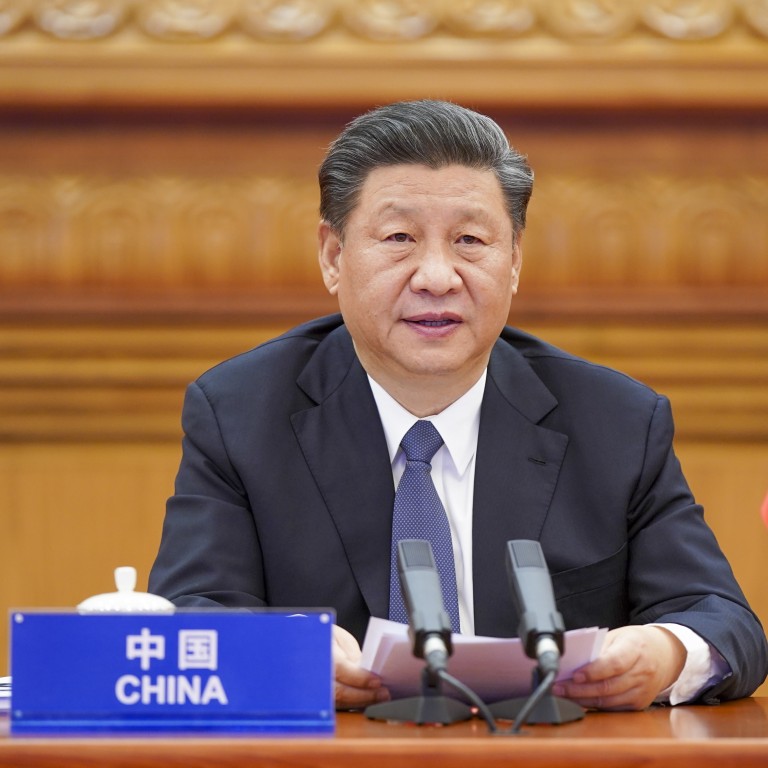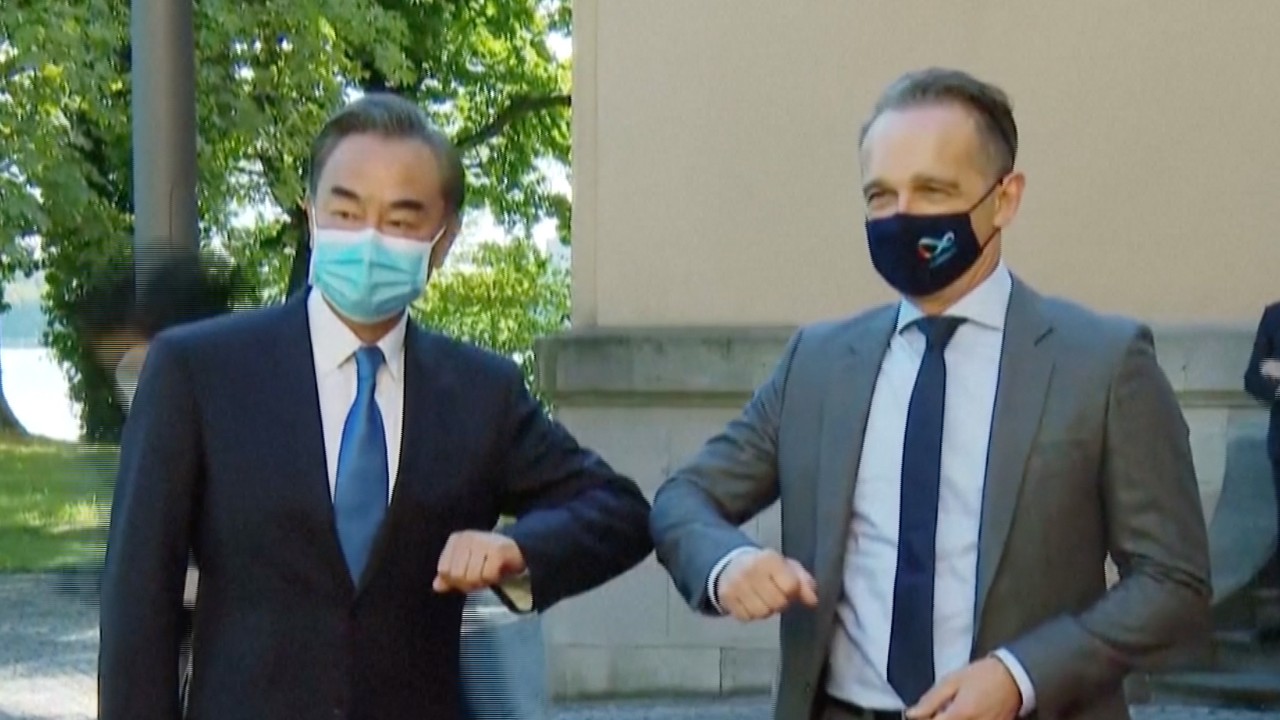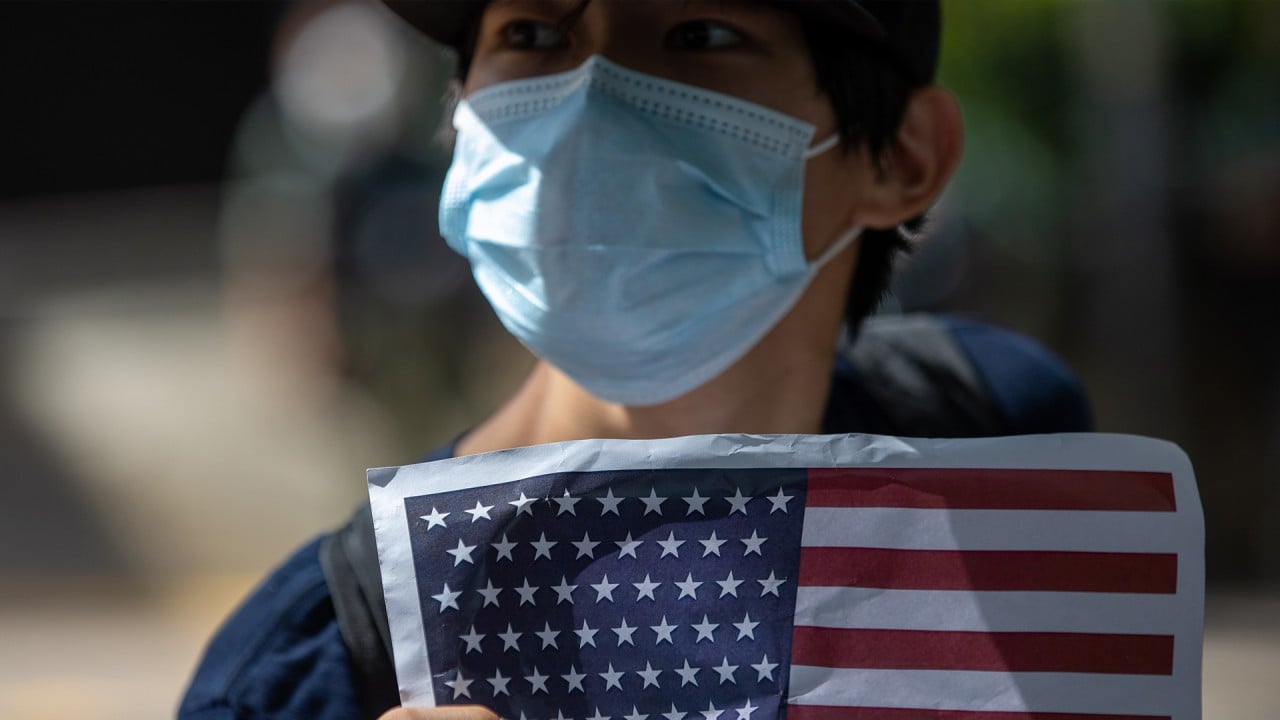
Xi Jinping likely to face criticism over Hong Kong crackdown during EU summit
- Beijing’s national security law and recent arrests are expected to be topic of discussion during online meeting on Monday
- Trade is the planned focus of the EU-China summit
European Union leaders are expected to renew pressure on Chinese President Xi Jinping next week over Beijing’s heavy-handed tactics in Hong Kong as the effects of the national security law start to emerge.
In the US, Secretary of State Mike Pompeo called for stability in Hong Kong after nearly 300 people were arrested on Sunday during protests against postponed local elections.
“Democracy, respect for fundamental freedoms, and government accountability to the people are the best paths to stability in Hong Kong – not draconian efforts to limit free expression, delay elections, and restrict travel,” he wrote on Twitter on Tuesday.
It is understood that the EU officials preparing for the virtual summit with Xi next Monday have been gauging updates about the situation in Hong Kong and will raise the issue with him.

02:56
Germany presses China on Hong Kong security law, seeks access to Uygurs in Xinjiang
In just over two months, Hong Kong police have used the national security law against media mogul Jimmy Lai Chi-ying – founder of the opposition Apple Daily newspaper – and Agnes Chow Ting, a prominent pro-democracy activist.
Over the weekend, Tam Tak-chi, vice-chairman of the localist party People Power, was detained by the police for “uttering seditious words”, raising fears of a heightened curb on freedom of speech. While the police used a colonial-era sedition law against him, it fell on the national security unit to investigate his case.
Hong Kong leader Carrie Lam Cheng Yuet-ngor defended Tam’s arrest, saying that it had “nothing to do with” freedom of speech and that criticising the government did not fall afoul of the law.
China must deliver on opening up promises ahead of ‘last chance’ EU summit
China has defended the national security law, saying it is necessary to return Hong Kong to normalcy after protests lasting for months that saw clashes between the police and demonstrators who Beijing claimed were organised by “foreign forces”.
The US, the EU, Britain Japan, Australia and Canada have all urged China to withdraw the law – the most recent call made by German Foreign Minister Heiko Maas while meeting with his Chinese counterpart, Wang Yi.
The issue is expected to arise again when Xi meets German Chancellor Angela Merkel, European Council President Charles Michel and European Commission President Ursula von der Leyen in an online summit.

01:15
US suspends extradition treaty with Hong Kong over city’s national security law
Germany, which holds the rotating presidency of the EU council, hopes to use the summit to get China to agree on economic reforms to secure an investment treaty with the 27-member single market.
For von der Leyen and Michel, Monday’s virtual summit will be the second discussion with Xi in less than three months. During the last summit, EU leaders warned Xi of “very negative consequences” over Beijing’s plan to crack down in Hong Kong.
“The national security law risks seriously undermining the ‘one country, two systems’ principle,” von der Leyen said in June.
China’s top diplomat reaches out to EU and Asean
In July, the EU proposed a “coordinated package” across all 27 countries to restrict transactions with the Hong Kong government, including a ban of exports of goods capable of “internal repression, the interception of internal communications or cyber-surveillance”.
The bloc also said it would consider further asylum and migration plans for Hongkongers, and step up coordination with Hong Kong students and universities.
Germany and France have announced a halt to extradition treaties with Hong Kong after a similar move by non-EU member state Britain.

